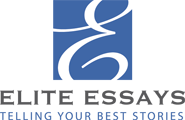Thoughts on Wharton 2013-2014
What strikes me about this year’s Wharton application compared to last year is that there are fewer essays and LOR questions, of course, but they are more thoughtful and comprehensive, something I’m seeing also in MIT, LBS and in its own way, HBS.
1. What do you aspire to achieve, personally and professionally, through the Wharton MBA? (500 words)
Talking with my client recently, we both agreed that the “professional” aspect of this question represents a typical goals essay, though without the strict requirement of expressing your aspirations in the standard short-term/long-term goals format. Doing so won’t hurt you, of course (having more detail rarely does), but it seems that Wharton recognizes the fluid nature of one’s career development and so you can probably get away with something a little less detailed than I would normally recommend for a school like Haas, with its harder short-term/long-term format.
As for the “personal” aspect of the question, I suggested that my client focus on the soft skill weaknesses he wanted to improve on, which is much more difficult to do compared with, say, a personal activity you want to pursue. But it’s that kind of intangible self-awareness that I think makes a key difference to adcoms. For that reason, I suggest completing a few other applications first before starting Wharton; the more essays you answer, the more you should learn about yourself, including your weaknesses.
2. Academic engagement is an important element of the Wharton MBA experience. How do you see yourself contributing to our learning community? (500 words)
First of all, limit contributions stemming solely from your professional experience, since it is exceedingly difficult to distinguish yourself based on your work alone. There will always be someone who does what you do, and there will always be someone who does what you do better. In addition, the adcom can largely understand the hard skills and experiences you can contribute just by looking at your resume. (This fact is one of the reasons behind HBS's decision to not require essays this year.)
Instead, I strongly recommend describing the “core skill” contributions that are often illustrated by your professional leadership accomplishments, but which can of course be present in your personal activities as well. Such a contribution might be “high-pressure conflict resolution” or “creative mentoring” or “persuading strangers to trust you” - whatever skills and traits you have developed and relied on to solve your most pressing problems and challenges. (Often times your weaknesses are the flip side of your strengths, so you have a chance here to coordinate this answer with the “personal growth” part of the essay above.)
I stress this aspect of self-awareness to my clients throughout our time working together. Understanding and being able to rattle off your strengths and weaknesses, especially in an interview, can give you an unbelievable advantage. It’s one of the greatest gifts you can give yourself in the application process and in life.
In contrast to professional areas, I suggest emphasizing your more unique personal experiences, hobbies, and activities, and more importantly the traits and characteristics those things reveal about you, as doing so will give you a better chance of standing out.
In either case, it is important to show brief examples of how you’ve made similar contributions in the past, and project how those things can apply at Wharton. If you’re good at “high-pressure conflict resolution”, for example, you’ll be a boon to your Learning Team when a deadline looms. And remember that not all of your contributions have to be deadly serious; adcoms like to laugh and be entertained as much as you do. Do you juggle or dance or play music or tell a good story or joke? Then Wharton Follies could use you too.
